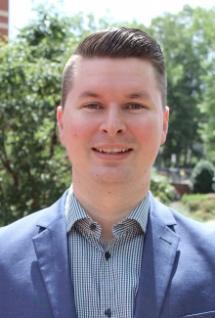2023 Non-Tenure Track Faculty Conference
Approximately 60% of VCU's full time faculty are in non-tenure track positions. This parallels the trend among U.S. colleges/universities where non-tenure track faculty composition has substantially increased across the past several decades.
The goal of the conference for non-tenure track faculty is to recognize their contributions, visualize and plan their career trajectories, and most importantly, create a space for conversations about the types and forms of support they may benefit from. The professional development conference space in itself will facilitate building connections and collaborations.
While this annual event targets non-tenure track faculty, all faculty, chairs, associate deans, and deans are welcome to attend and participate.
We hope non-tenure track faculty will come together to listen and learn from each other, engage with local and national experts, and have conversations about topics related to the culture of care for faculty. This is an exciting opportunity to connect, discover and engage on topics that matter to you!
The inaugural conference is being held in Spring 2023 and is only open to VCU faculty. The intention is to expand the invitation, next year, to other universities to increase knowledge, share ideas, exchange resources, learn strategies, and develop stronger faculty networks to enhance your career. We seek to focus on longstanding and current topics faced by non-tenure track faculty, such as career trajectory and promotional pathways; the scholarship of teaching and learning; importance and integration of teaching observations into your routine; and management of competing commitments, to name a few. The conference theme for 2023 is Invest in YOU! Non-Tenure Track Career Pathways.
Invest in YOU! Non-Tenure Track Career Pathways
Monday, May 8, 2023 | 8:30am-5:00pm
Conference Keynote
Ryan Miller, Ph.D., Associate Professor of Higher Education, University of North Carolina at Charlotte
Ryan A. Miller, Ph.D., is Associate Professor of Higher Education at the University of North Carolina at Charlotte, where he teaches courses on college student affairs administration and higher education leadership. His research focuses on the experiences of minoritized social groups in higher education and the institutionalization of diversity and equity initiatives within colleges and universities. Miller has edited two books and published 45 journal articles and book chapters. Prior to becoming a faculty member, he worked in college student affairs for eight years. Miller received graduate degrees in education from The University of Texas at Austin and Harvard University.


8:30-9:00am | Check in, Breakfast & Welcome Remarks
Mangala Subramaniam, Ph.D., Senior Vice Provost for Faculty Affairs; Fotis Sotiropoulos, Ph.D., Provost and Senior Vice President for Academic Affairs
9:00-10:15am | Keynote: “Heavy Lifters of the University”: Non-Tenure Track Faculty Creating Change
Keynote introduction: Jill Gordon, Ph.D., Assistant Vice Provost for Faculty Affairs
Keynote: Ryan Miller, Ph.D., Associate Professor of Higher Education, University of North Carolina at Charlotte
10:30-11:30am | Open Forum with VCU Non-Tenure Track Faculty
Fotis Sotiropoulos, Ph.D., Provost and Senior Vice President for Academic Affairs
11:30am-12:30pm | Lunch
12:30-2:00pm | Charting Your Career Trajectory
Non-tenure track faculty are often champions of change and contribute immensely to the teaching and research mission of the institution - depending on the emphasis in the appointment. The work of integrating non-tenure track faculty and recognizing their contributions is still an ongoing project in the higher education landscape. There is immense diversity in the structure and experiences of non-tenure track faculty which are heavily influenced by institutional context and the prevailing educational environment. Institutional researchers are especially in need of increased understanding of how this critical workforce is being supported in their careers. One form of support is to encourage non-tenure track faculty to map their career trajectory in the short and long term. Towards that end, this session is structured as a discussion with faculty representing the diverse roles and activities non-tenure track faculty engage in, as well as those involved in the assessment of non-tenure track faculty work. They will offer meaningful pathways for career advancement and successful promotion.
Moderator: Archana Pathak, Ph.D., Interim Assistant Vice Provost for Faculty Affairs
Panelists: Harinder Dhindsa, Professor, School of Medicine; Preetam Ghosh, Interim Chair, College of Engineering; Irene Herold, Dean, VCU Libraries; Robin Hurst, Associate Professor, School of Education; S. Douglas Pugh, Associate Dean, School of Business; Linda Zyzniewski, Professor, College of Humanities and Sciences
2:15-2:30pm | Invest in YOU: A Look at VCU’s Health and Well-being Resources
VCU is committed to supporting the overall health and well-being of its employees. This session highlights some of the programs and resources available to help you invest in your wellness goals.
Suzanne Weaver, MS, CHSP, Director of Operations and Wellness for VCU & VCUHS Employee Health
2:45-4:00pm | Document Your Activities: Demonstrating Your Impact and Success
Invest in your success through regular documentation and reflection on your teaching, research, clinical or professional activities. Doing so is not only beneficial in advancing your own professional development, improvements and engagement but also key in your career pathway for growth and recognition plus may serve as a foundation for annual evaluations and promotion. Being intentional about such practices will enable you to have a ready record of your work/contributions you can utilize any time. More importantly, it will allow you to clearly identify your innovation, experimentation/research, community engagement, and the impact on students, the community or the profession. In this session, panelists will share how to document activities, maintain or develop evidence of advancements and innovation in teaching and learning, community engagement, research or creative activities.
Moderator: Jill Gordon, Ph.D., Assistant Vice Provost for Faculty Affairs
Panelists: Beth Bukoski, Assistant Professor, School of Education; Carlos Escalante, Professor, School of Medicine; Christiana Lafazani, Associate Dean, School of Arts; Karla Mossi, Professor, College of Engineering
4:00-5:00pm | Networking Reception
References
Kezar, A., DePaola, T., & Scott, D. T. (2019). The gig academy: Mapping labor in the neoliberal university. Baltimore, MD: Johns Hopkins University Press.